
In recent years, the plastic injection manufacturing industry has been at the forefront of innovation, driven by the urgent need for sustainability amidst growing environmental concerns. According to a report by Grand View Research, the global plastic injection molding market is projected to reach USD 299.67 billion by 2025, underscoring its critical role in various sectors, from automotive to consumer goods. Despite its expansive growth, the industry faces pressures to reduce its carbon footprint and enhance recyclability. Innovations such as bioplastics and energy-efficient machinery are not only transforming production processes but also aligning with a more sustainable future. As we delve into the comparison of these emerging technologies within the plastic injection manufacturing landscape, it becomes evident that embracing innovation is essential for both economic viability and environmental responsibility.

The shift towards eco-friendly plastics in injection molding is not just a trend but a necessity for a sustainable future. Innovative materials such as bio-based plastics and recycled polymers are paving the way for greener manufacturing processes. These alternatives not only reduce reliance on fossil fuels but also lower carbon emissions during production. For example, polylactic acid (PLA), derived from renewable resources like corn starch, is becoming a popular choice among manufacturers seeking to diminish their environmental impact.
Moreover, advancements in technology are enhancing the recycling capabilities of traditional plastics. The development of improved recycling techniques enables the reuse of industrial waste and post-consumer plastics, integrating them back into the production cycle. This circular approach not only conserves resources but also minimizes waste, addressing the pressing issue of plastic pollution. As companies adopt these innovative materials and processes, the injection molding industry is evolving, showcasing a commitment to sustainability that resonates with environmentally conscious consumers. Through these innovations, a future where plastic can be both functional and eco-friendly is becoming increasingly attainable.
The chart below showcases the predicted market share of various eco-friendly plastic materials in injection molding by 2025. The data illustrates the growing emphasis on sustainability within the industry.
In today's fast-paced manufacturing landscape, the integration of smart technologies is revolutionizing plastic injection molding processes. Advanced techniques such as Internet of Things (IoT) sensors and artificial intelligence (AI) enable manufacturers to monitor production lines in real-time, ensuring optimal performance. By leveraging data analytics, companies can predict potential issues before they arise, drastically reducing downtime and enhancing overall efficiency.
Tip: Implementing predictive maintenance strategies can significantly extend equipment lifespan and prevent costly repairs. Regularly updating software and training staff on new technologies also plays a crucial role in maintaining an efficient workflow.
Moreover, the use of automation and robotics in plastic injection manufacturing is paving the way for a more sustainable future. These innovations not only streamline operations but also minimize waste through precise material usage. By adopting smart manufacturing systems, businesses can adapt quickly to changing market demands while promoting eco-friendly practices.
Tip: To enhance sustainability, consider using recyclable materials in your production processes. Collaborating with suppliers who prioritize green technologies can also boost your overall environmental impact. Embracing these smart techniques not only benefits efficiency but also aligns your business with sustainable manufacturing goals.
| Technique | Description | Efficiency Improvement (%) | Sustainability Impact |
|---|---|---|---|
| Digital Twin Technology | Creates a virtual model of the manufacturing process, enabling real-time monitoring and optimization. | 25% | Reduces waste and energy consumption. |
| Robotic Automation | Utilizes robots for repetitive tasks to increase precision and reduce cycle time. | 30% | Decreases material use by enhancing accuracy. |
| Additive Manufacturing Integration | Combines 3D printing with traditional methods for complex geometries. | 40% | Promotes material recycling and reduces scrap. |
| Machine Learning Algorithms | Analyses data to predict maintenance needs and optimize processes. | 20% | Minimizes downtime and enhances resource utilization. |
| Smart Material Selection | Using sustainable materials that decrease environmental impact. | 15% | Improves recyclability and reduces carbon footprint. |
The shift towards a circular economy is pivotal in addressing the plastic waste crisis and reimagining its role in manufacturing. According to the World Economic Forum, it is estimated that by 2030, the global plastic packaging market could reach $500 billion. However, this growth comes with the challenge of managing over 300 million tons of plastic produced annually, with only 9% recycled, highlighting an urgent need for effective recycling strategies. By implementing innovative procedures, manufacturers can reclaim a significant portion of this waste, turning it back into valuable raw materials for production processes.

One promising strategy is the use of advanced recycling technologies such as chemical recycling, which allows for the processing of mixed plastic waste that is typically non-recyclable. A report by the Ellen MacArthur Foundation suggests that transitioning to a circular economy could generate economic benefits of $1 trillion globally by 2025, driven by increased efficiency and the development of new market opportunities. By integrating these strategies into plastic injection manufacturing, companies can not only reduce waste but also ensure a sustainable future by supporting the closed-loop systems essential for minimizing environmental impact and promoting resource efficiency.
The digital transformation brought about by Industry 4.0 is fundamentally reshaping plastic injection molding, a critical process in manufacturing that aligns with the growing demand for sustainability. According to a report by the Boston Consulting Group, companies that embrace digital technologies can reduce operational costs by up to 30% while increasing production efficiency by more than 20%. This shift is propelled by the integration of smart technologies, such as IoT (Internet of Things) sensors, which enable real-time monitoring and predictive maintenance of machinery, vastly improving uptime and product quality.

Moreover, the application of data analytics in injection molding processes has been shown to optimize production cycles and minimize material waste. A recent study from the International Society of Automation indicates that leveraging data analytics can lead to a 15% decrease in material wastage, a significant factor in moving towards more sustainable manufacturing practices. As manufacturers continue to innovate with Industry 4.0 technologies, the future of injection molding looks promising, paving the way for a more efficient and environmentally friendly industry.
In recent years, the plastic injection manufacturing industry has seen a shift towards more sustainable practices. By implementing green methods, companies not only reduce their environmental impact but also enhance their brand reputation and efficiency. One effective approach is to utilize bio-based and recycled materials in the production process. This not only cuts down on the dependency on fossil fuels but also minimizes waste, as these materials can often be sourced locally.
Tips for integrating sustainable materials include partnering with suppliers who prioritize eco-friendly options and performing life cycle assessments to ensure that materials are genuinely sustainable from production to disposal. Additionally, investing in energy-efficient machinery can substantially lower energy consumption and reduce greenhouse gas emissions.
Another key aspect of sustainable plastic injection manufacturing is optimizing the production process. Techniques such as using advanced simulation software can help manufacturers refine designs and reduce scrap rates. Incorporating automation can also streamline operations, leading to lower energy usage and less waste. Embracing these innovative changes not only supports a greener future but also offers manufacturers a competitive edge in an increasingly eco-conscious market.
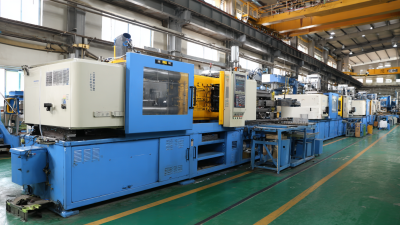
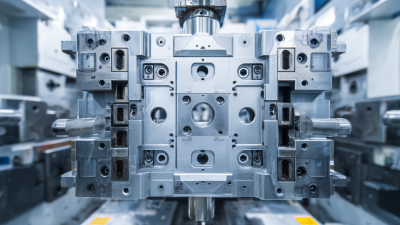
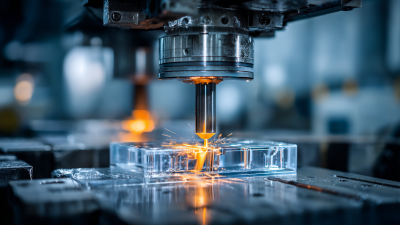
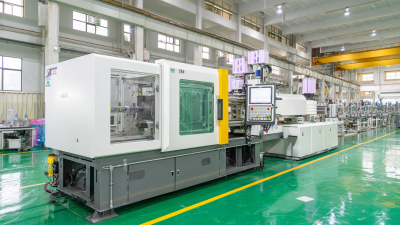
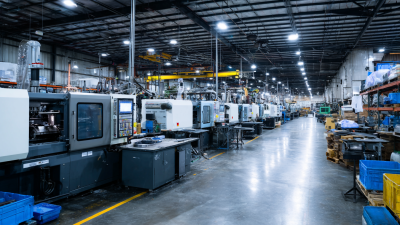

Copyright © 2025 The Toolroom Inc. All Rights Reserved.
Website Design St Louis by IQComputing